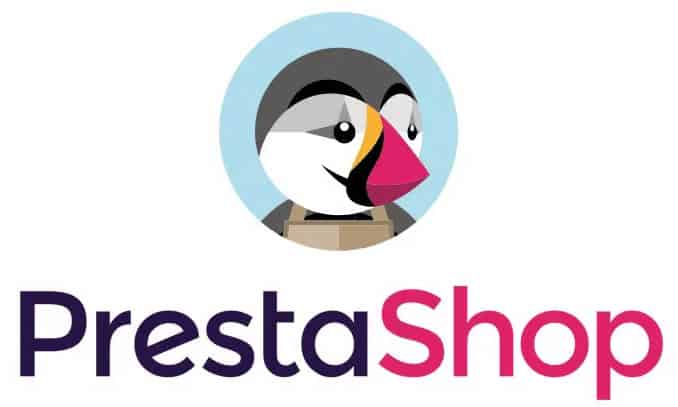
Magento is an open-source option that sellers worldwide have been using to create an online store to meet their business needs. While the platform is developed for B2C sellers, some B2B sellers also utilize it. Because Magento announced they would no longer support Magento 1 starting June 2022, their users must now choose whether to re-platform to the new version or begin looking for Magento alternatives. If you utilize Magento or are considering options to Magento this year, here are top contenders to think about.
Why Leave Magento?
Magento 1 was an excellent open-source service with a variety of customizations readily available. Because of this, nearly every Magento installation is highly customized. Sadly, these customizations will not incorporate as-is to Magento 2. Magento 1 does not perfectly integrate with Magento 2 at all. Therefore, upgrading to Magento 2 is more like re-platforming, specifically if your instance is customized or uses plugins, themes, and APIs from the community.
If upgrading is like re-platforming, it just makes sense to survey the eCommerce environment and look at Magento eCommerce alternatives and other b2b eCommerce software applications. Only then can you make a notified decision about the pros and cons of staying with Magento. Who understands, you may find there is an alternative to Magento eCommerce that makes better business sense.
Why You Loved Magento?
You picked Magento as the open-source software application for your eCommerce platform for a variety of reasons. Possibly certain functions were specifically appealing at the time, or maybe the supporting community seemed like a favorable safety net. Whatever it was you loved about Magento, Consider this when examining Magento competitors.
1. Flexible and customizable
If you might write PHP code or employ someone that could, you might customize Magento to your requirements. Magento has numerous templates and themes you can pick from to develop an online store. You could personalize how your products are displayed and how your consumers browse through the store. If versatility is required, you’ll just wish to think about solutions that are quickly customized.
2. Multiple online stores from one instance
Does your service operate more than one online store? Maybe you have one domain for B2C and another for B2B. Numerous medium and enterprise-sized businesses are drawn to Magento for its capability to deal with numerous storefronts with one installation. It is not the case with the majority of B2C eCommerce platforms, and not all B2B eCommerce platforms offer this function either. So, unless you are aiming to replace one circumstance of Magento with multiple instances of another eCommerce option, this will be an important element.
3. Extensive support
If you are utilizing the Enterprise Edition of Magento, those substantial monthly fees you pay to cover the support cost. Even if you utilize the Community Edition, it has a robust community rather because the Magento code is open source. It’s normally pretty simple for developers to discover a partner, and there are countless extensions readily available in the marketplace.
4. Mobile Experience
As an online seller, you realize the need to provide your products to your customers 24/7/365 no matter where your clients lie or how they are buying in. You might have been a former adopter of eCommerce and were drawn to Magento’s capability to render your content on any gadget, or perhaps you entered the game later however acknowledged the requirement for mobile-ready content. In either case, Magento has actually always been known for its capability to offer users a mobile-ready experience. If you are going to be selling online, you have actually got to offer users with the very same experience, whether on smartphones, tablets, or tablets.
Magento 2 Disadvantages
If you’ve read practically anything about Magento 2, it’s led you to begin considering alternatives to Magento Enterprise or Magento Community. That’s since the web is filled with Magento scary stories like the one module that ruined an entire Magento website and left the backend inaccessible for 24 hr. Overall site destruction aside, here are a few of the disadvantages of moving to Magento 2.
1. Difficult and Expensive to Update
The upgrade from Magento 1 to Magento 2 is not an upgrade. It’s an overall re-platforming effort. Your extensions may require to be changed if a Magento 2 version isn’t available. Your theme will require to be developed from scratch. This upgrade isn’t going to be cheap, quick, or simple.
2. Higher Costs
Your per month cost remains the same if you use Community Edition of Magento. But In case you are using the Enterprise Version of Magento, You should be ready for some sticker label shock. The license price is higher, starting from $18000 to $22000 yearly. It is 18% higher than Magento 1.
3. Difficult Data Migration
If you are presently on Magento 1, don’t believe data migration will be easy. It won’t be. Magento offers a data migration tool for those upgrading from the legacy version; however, even then, it will be a task. According to dotcomweavers, you ought to “get ready for a resource-heavy and possibly bumpy migration.”
4. Development Costs
Magento 2 gets an upgrade to PHP7, that is a good thing, but you will need a developer’s services to get up and run. And once you do, it’s resource-intensive. Therefore, the budget for development costs increases.
What Do You want in a B2B eCommerce Platform?
This year, b2b eCommerce software application will be packed with features that may not have actually been offered the last time you searched. So, start by assessing what features you require to keep and what features you should add.
1. Out-of-the-box Functionality
With everybody scrambling to move from Magento 1 by June, you will probably face a talent scarcity the closer you get to the sundown date. In the race to the finish, the most performance options right out of the box will be the clear winners. These Magento alternatives will need less customization and reduce your time to ROI substantially.
2. Built for B2B eCommerce
While B2B clients want a buying experience similar to B2C, they have extremely various needs. If you are a B2B seller, ensure you choose a platform that quickly integrates with your client’s eProcurement systems with support for EDI and punchout catalogs. If many people are typically involved in the purchase decision, make sure your service permits users to limit purchase roles.
3. Flexibility
Whereas prices are usually negotiated in B2B, your new platform will need to easily deal with several price lists, multiple prices by quantity, and even numerous client quantities. Expect you operate in more than one country. In that case, you’ll also desire the ability to provide your content in numerous currencies and languages rapidly. Look for services that bake-in one of the most flexibility so you can quickly customize your storefront without extensive advancement.
4. Support for Sales and Marketing
How simple will it be to create new landing pages? Does the platform incorporate social networks? You desire a B2B eCommerce platform that offers the marketing and sales tools you require to fuel growth. Ensure you can segment your markets and trigger custom messages. A combination of popular e-mail platforms is required.
List of The Best Magento Alternatives 2022
We list some of the most popular Magento alternatives. As eCommerce platforms, they are all Magento comparable products; however, some are much better for B2C, and others are best matched for B2B.
1. OroCommerce
In the B2B eCommerce platform, OroCommerce is the definitely winner. This new public source eCommerce platform from the makers of Magento was built from the ground up for B2B. It has a robust architecture that allows some very complex features and comes out of the box with most B2B sellers’ functionality to get up and to sprint. It is perfectly suited for mid-market and enterprise businesses in multi-channel retail, manufacturing, distribution, wholesale, and large multi-site and multi-national brands.
Key Features: Offered in cloud-based or on-premise options, OroCommerce easily handles several companies, several brochures, multiple price lists, and even features an integrated CRM. It is open-source and easily adjustable. It can be utilized with a standard or headless architecture and can support numerous companies with one instance.
Pros: Robust workflow engine enables you to quickly configure the option to how your business operates and not the other way around. Huge functions list and easily incorporates with ERPs, PIM, 3PL, and other services.
Workflow Engine in OroCommerce
Cons: Magento users will feel ease. Then other users will require the training to take benefits of the full performance of the solution.
2. Prestashop
Like OroCommerce, PrestaShop is a free eCommerce solution. It provides a cloud or on-premise solution. You are allowed to build your website from the ground up using Prestashop.
Key Features: PrestaShop is genuinely a global solution.
It has a large international community of social network users, developers, and bloggers and available in 65 languages.
Pros: The interface and administrative panel are a lot more user-friendly and simpler to utilize than Magento 1 or 2. There are numerous styles offered to tailor your website and a lot of extensions as well.
Cons: Security is your liability with PrestaShop, and you’ll require to arrange your hosting.
3. Shopify
Shopify is well-known, with sellers simply starting in eCommerce. It is a SaaS service that supports multi-channel retailing and, in lots of instances, can be set up without the services of a developer.
Key Features: Shopify is simple to get up and to run faster. It offers a versatile site builder, and the sophisticated shopping cart incorporates over 70 payment gateways.
Pros: Shopify can be used to promote off-site sales. It is simple and easy to use and features 24/7 assistance.
Cons: The ease of use features a price, it is not as customizable as Magento or OroCommerce, monthly costs can quickly accumulate, and if you choose to leave Shopify, you can’t take your website with you.
4. BigCommerce
Just like Shopify, BigCommerce is a SaaS solution that can get you to market quickly. Simply pick a design template, carry out a couple of adjustments, load your products, and you’re off to the races. Also, like Shopify, BigCommerce comes total with month-to-month fees.
Key Features: BigCommerce allows you to quickly sell physical and digital goods. Its internal analytics provides strong marketing support, and you can sell in many currencies. It is directed towards B2C retail sales and not B2B eCommerce.
Pros: Like Shopify, you can quickly open your store for an organization with the use of wizards. It is one of the few huge eCommerce platforms that quickly enables the sale of digital items. The built-in marketing features integrate well with social network platforms.
Cons: This service is not ready for Enterprise-scale operations.
5. WooCommerce
If you utilize WordPress for CMS, then WooCommerce is the obvious answer. It is a light-weight plugin developed to bring eCommerce to WordPress blog sites and websites.
Key Features: WooCommerce is the better-downloaded eCommerce extension for WordPress.
Pros: Therefore, the WooCommerce community is so large, you have access to tremendous assistance. Because it’s made for WordPress, it offers the most smooth combination you can find and uses substantial documents if you feel the requirement to customize.
Cons: It is not known for operating at scale, so this is not an Enterprise solution. Also, it only works with WordPress.
From Magento to OroCommerce
It allows you to move from Magento 1; you should take a severe look at OroCommerce.
Due to the fact that OroCommerce was built by the exact same individuals that developed the original Magento, you’ll find the interface familiar and comfy. However, that’s just the start.
OroCommerce eCommerce platform advanced WYSIWYG editor.
OroCommerce comes out of the package with the performance B2B eCommerce needs to get up and to run. Customize what you desire, but there’s no need for massive development to make it B2B ready. That’s because OroCommerce was built for B2C, B2B, B2B2B, or any other situation you can think of. Like Magento, the code is open-source, and it is available in an on-site and cloud version. There is even a function to assist you quickly import information from Magento instances into OroCommerce. You may get a cleaner import into OroCommerce than you do from Magento 1 to Magento 2!
Also Check :
Final Words:
To Evaluate the Magento competitors listed above, and compare your current installation with the variety of brand-new functions included in current products. You might discover an eCommerce platform that better matches your business needs.








